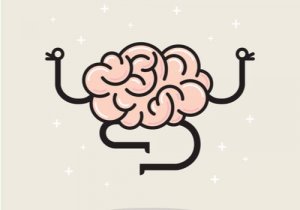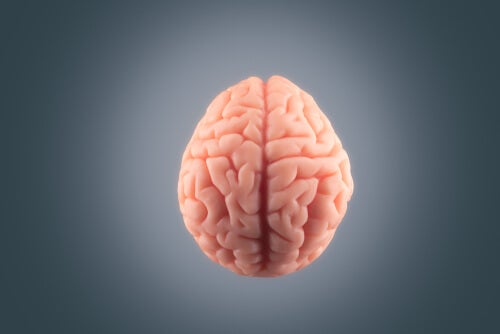The Brain Doesn't Feel Pain - Why Is That?

The brain is the organ responsible for processing pain, integrating the incoming information through nerve terminals, and the interpretation of these signals. However, interestingly, the organ itself doesn’t feel pain.
Thus, pain is a vital signal that warns of an injury or damage. And it sets natural mechanisms in motion to solve it. The way it does it is through a series of nerve endings that pick up a signal.
The name of these endings is nociceptors and they receive sensory information from the outside and inside of your bodies. They’re at the end of the axons of sensory neurons and can transmit it to the brain. Also, it can transmit information about mechanical, thermal, or chemical lesions in a matter of tenths of a second to the entire nervous system.

Why doesn’t the brain feel pain?
Paradoxically, there are nociceptors in the brain but the brain itself can’t feel pain. Far from knowing the advantages this brought to human survival, it allows neurosurgeons to operate on the brain using only local anesthesia.
Thus, the patient can remain awake while the surgery is going on. This is great because they can confirm that everything is going well.
You might think that your brain hurts or that it’s going to explode when you have a headache. However, what you’re really feeling is the nervous tissues, meninges, blood vessels, and muscles around the brain.
These elements, which have nociceptors, can become inflamed, damaged, or dilated. Thus, they send an alarm to the brain that something’s wrong and lead to widespread headaches. In cases such as brain tumors or cerebral hemorrhage, in which there’s pain, it doesn’t really come from the brain. In fact, it comes from the pressure it exerts on the surrounding blood vessels.
Brain pain and headaches
Generally, headaches aren’t serious and are mainly due to tension headaches, migraine, sinusitis, or neck inflammation. The head may also ache due to a common cold, the flu, or other viral diseases that cause alterations in the blood supply or inflammation.
However, there are other more serious problems that can cause pain. Some of them are:
- An abnormal connection between arteries and veins in the brain.
- A cardiovascular accident that causes blood flow to stop.
- Broken blood vessels or a brain aneurysm.
- Brain bleeding or intracerebral hematoma.
- Bleeding around the brain: subarachnoid hemorrhage, subdural or epidural hematoma.
- Acute hydrocephalus or interruption of cerebrospinal fluid.
- Very high blood pressure.
- Infection of the brain or nearby tissues.

When to consult with your doctor?
Because the brain doesn’t feel pain, headaches are the main symptom that signals injuries to this organ. But not all headaches indicate something serious, as indicated above.
You must know when this pain may be due to truly serious causes so you can consult a doctor. Thus, medical attention is necessary when:
- The pain interferes with your daily life.
- It’s stronger after physical activity.
- Makes a sudden and explosive appearance.
- It’s associated with vision, mobility, language, or memory alterations.
- Is it worse in 24 hours?
- It manifests with other symptoms such as fever, stiffness, and nausea.
- There’s redness in one eye.
- You have a history of cancer or a weakened immune system.
- The headache wakes you up and you can’t fall asleep again.
In conclusion, when you have a headache what you’re feeling are the tissues, vessels, and muscles around the brain. As you can see, despite being responsible for processing pain, the brain is unable to feel it.
Thus, if your headache is atypical, you must consult a doctor who can assess whether it’s due to an injury to the tissues or inside the brain.
The brain is the organ responsible for processing pain, integrating the incoming information through nerve terminals, and the interpretation of these signals. However, interestingly, the organ itself doesn’t feel pain.
Thus, pain is a vital signal that warns of an injury or damage. And it sets natural mechanisms in motion to solve it. The way it does it is through a series of nerve endings that pick up a signal.
The name of these endings is nociceptors and they receive sensory information from the outside and inside of your bodies. They’re at the end of the axons of sensory neurons and can transmit it to the brain. Also, it can transmit information about mechanical, thermal, or chemical lesions in a matter of tenths of a second to the entire nervous system.

Why doesn’t the brain feel pain?
Paradoxically, there are nociceptors in the brain but the brain itself can’t feel pain. Far from knowing the advantages this brought to human survival, it allows neurosurgeons to operate on the brain using only local anesthesia.
Thus, the patient can remain awake while the surgery is going on. This is great because they can confirm that everything is going well.
You might think that your brain hurts or that it’s going to explode when you have a headache. However, what you’re really feeling is the nervous tissues, meninges, blood vessels, and muscles around the brain.
These elements, which have nociceptors, can become inflamed, damaged, or dilated. Thus, they send an alarm to the brain that something’s wrong and lead to widespread headaches. In cases such as brain tumors or cerebral hemorrhage, in which there’s pain, it doesn’t really come from the brain. In fact, it comes from the pressure it exerts on the surrounding blood vessels.
Brain pain and headaches
Generally, headaches aren’t serious and are mainly due to tension headaches, migraine, sinusitis, or neck inflammation. The head may also ache due to a common cold, the flu, or other viral diseases that cause alterations in the blood supply or inflammation.
However, there are other more serious problems that can cause pain. Some of them are:
- An abnormal connection between arteries and veins in the brain.
- A cardiovascular accident that causes blood flow to stop.
- Broken blood vessels or a brain aneurysm.
- Brain bleeding or intracerebral hematoma.
- Bleeding around the brain: subarachnoid hemorrhage, subdural or epidural hematoma.
- Acute hydrocephalus or interruption of cerebrospinal fluid.
- Very high blood pressure.
- Infection of the brain or nearby tissues.

When to consult with your doctor?
Because the brain doesn’t feel pain, headaches are the main symptom that signals injuries to this organ. But not all headaches indicate something serious, as indicated above.
You must know when this pain may be due to truly serious causes so you can consult a doctor. Thus, medical attention is necessary when:
- The pain interferes with your daily life.
- It’s stronger after physical activity.
- Makes a sudden and explosive appearance.
- It’s associated with vision, mobility, language, or memory alterations.
- Is it worse in 24 hours?
- It manifests with other symptoms such as fever, stiffness, and nausea.
- There’s redness in one eye.
- You have a history of cancer or a weakened immune system.
- The headache wakes you up and you can’t fall asleep again.
In conclusion, when you have a headache what you’re feeling are the tissues, vessels, and muscles around the brain. As you can see, despite being responsible for processing pain, the brain is unable to feel it.
Thus, if your headache is atypical, you must consult a doctor who can assess whether it’s due to an injury to the tissues or inside the brain.
This text is provided for informational purposes only and does not replace consultation with a professional. If in doubt, consult your specialist.







